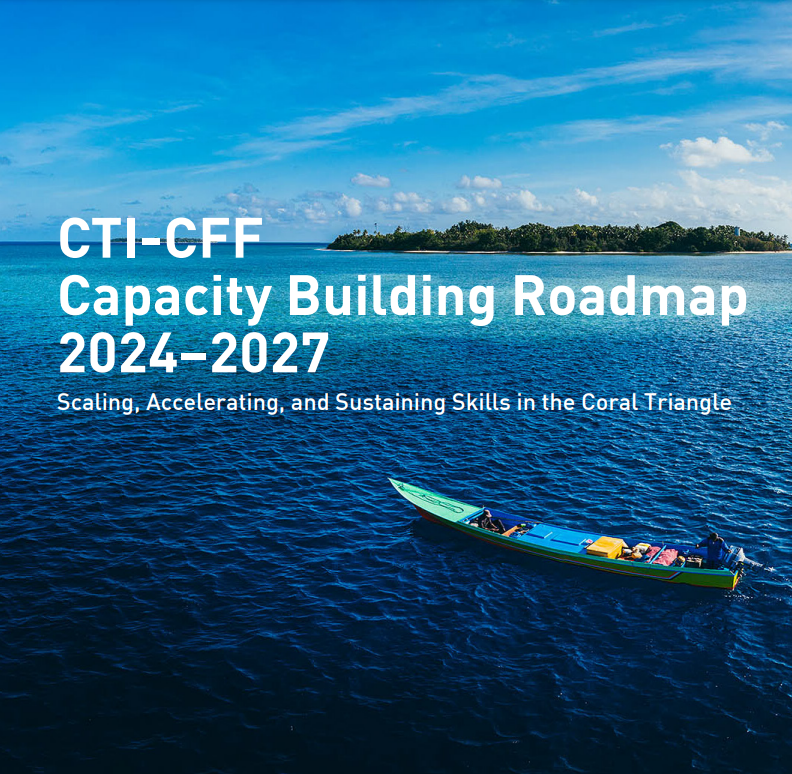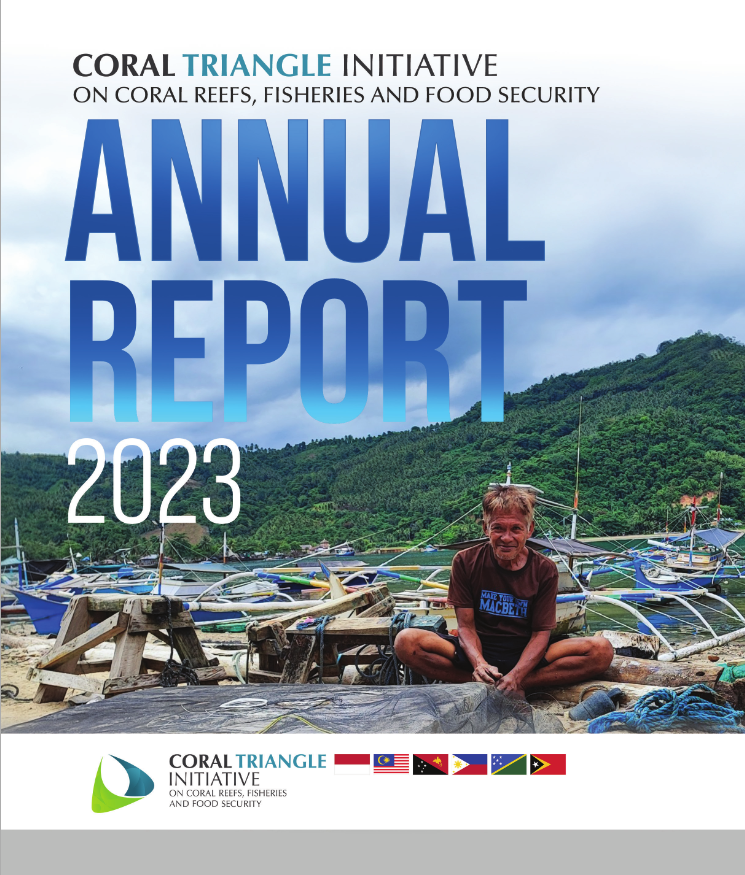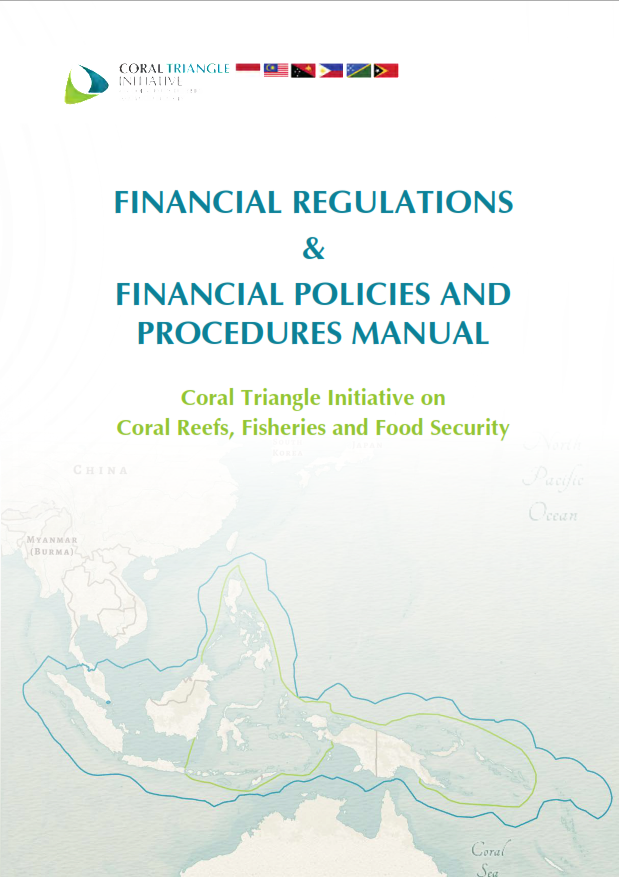CTI-CFF Contributes Inputs on Ocean Governance in the UNDESA and UNIDO Assembly in Vienna, Austria
- CTI-CFF provides contributions with 2 (two) inputs of Critical Points and two (2) Action Points on Ocean Governance in an assembly which organized by 2 (two) UN agencies: United Nations Industrial Development Organization (UNIDO) and the United Nations Department of Economic and Social Affairs (UNDESA) in Vienna, Austria
Manado, 19 December 2016 – The Regional Secretariat of Coral Triangle on Coral Reefs, Fisheries, and Food Security (CTI-CFF) represented by Widi A. Pratikto, Ph.D, the Executive Director, fulfills the invitation from 2 (two) UN agencies, UNIDO and UNDESA as one of Expert Group Meeting members to provide valuable feedbacks to a high-level political forum on sustainable development in 2017 with a theme “Readying institutions and policies for integrated approaches to implementation of the 2030 Agenda” which will be held in July 2017 under the auspices of the UN agency for Economic and social Affairs, UNDESA.
During the expert group meeting held at the headquarter of UNIDO, Vienna-Austria from 14-16 December, CTI-CFF provides input based on its strategic position and role run by the Regional Secretariat i.e. 2 (two) critical points of ocean governance and 2 (two) action points about ocean governance which presented in Panel 7 - integrated actions for oceans, including the realization of the Sustainable Development Goals (SDG) objectives No. 14, that is the preservation and use of ocean resources, marine, and coastal areas for sustainable development.
The 2 (two) critical points of ocean governance which presented in the expert meeting are as follows:
1.
Preservation of outstanding marine and fisheries resources along with its biodiversity requires bold action, political commitment at all levels (i.e. local, national and regional levels), including grass-root level through NGOs engagement as well as global partnerships. In this regard, solid partnerships are essential to support marine resources and initiatives of communities.
2.
A solid and effective Monitoring and Evaluation (M&E) systems in the ocean governance is mostly needed in order to determine what structure is most practical and to track progress towards the goals of the regional and national plans of action. However, at the level of local scale, it was found that the capacity to collect strategic data, systematically store and align with regional and national plans of actions were weak. This should be synergized by collective efforts through coordinated manners in regional and national programs. For instance, the establishment of Local Government Network (LGN) and Women Leaders Forum (WLF) to strengthen activities at local communities.
While the 2 (two) action points of ocean governance which presented in the expert meetings are as follows:
1.
The management of ocean governance is essential to properly integrate into the national planning system because the ocean governance has substantial elements to interlink between policies/approaches and the outcomes/impacts to national socio-economic development and reduction of poverty while in the same time facing a number of threats.
2.
The M&E shall overview indicators based on outcomes and impacts so that the status of coastal and marine environment, fisheries resources and economic values to coastal communities can be measured. In addition, it is imperative to synergize collective efforts between regional and national plans of actions in terms of targets and alignment with the SDG No.14 of Conserve and sustainably use the oceans, seas and marine resources for sustainable development.
Executive Director of CTI-CFF Regional Secretariat, Widi A. Pratikto, said: "We hope that the feedback given to the 2 (two) of UN agencies, UNIDO and UNDESA, can become a strategic perspective in the stage of preparation of global policy and institutions in achieving the 2030 Agenda of Sustainable Development Goals (SDG), in particular SDG No. 14 – both in global and Coral Triangle region."
The expert group meeting is one of the main platforms for UN agencies in reviewing the implementation of the 2030 (SDG) Agenda. The 3-day meeting reflects on how the government can develop and implement an integrated approach to achieve the objectives of SDG. The meeting was attended by about 250 participants from around the world comprising representatives from the Government, UN organizations, academia and NGOs. Several high-level guests, including the President of the ECOSOC, the Executive Director of UNITAR, the Minister of Women of the Dominican Republic, the Minister of Planning and External Cooperation of Haiti, the Vice Minister of Environment of Peru, and the Undersecretary of Health of the Philippines, and of the Executive Director of CTI-CFF attended this important event.
-end-
About CTI – CFF
The Coral Triangle Initiative on Coral Reefs, Fisheries, and Food Security (CTI-CFF) is a multilateral partnership of six countries working together to preserve marine resources and coastal, and focuses on some key issues such as food security, climate change, and marine biodiversity. CTI-CFF was established formally in the Leaders’ Summit in 2009 with approval of the leaders in six countries, Indonesia, Malaysia, Papua New Guinea, the Philippines, Solomon Islands, and Timor-Leste (CT6) to adopt CTI Regional Plan of Action (CTI RPOA) which is a strategic action plan that divided into several working groups that deal with (i) Management of seascapes (ii) an ecosystem-based fisheries management (iii) marine protected areas (iv) climate change adaption, and (v) management of the endangered species.
-o0o-
Media Contact:
Andie Wibianto
Information and Communication Manager
Regional Secretariat CTI-CFF
www.coraltriangleinitiative.org
E: andiewibi@cticff.org
M: +62 856 765 3939



